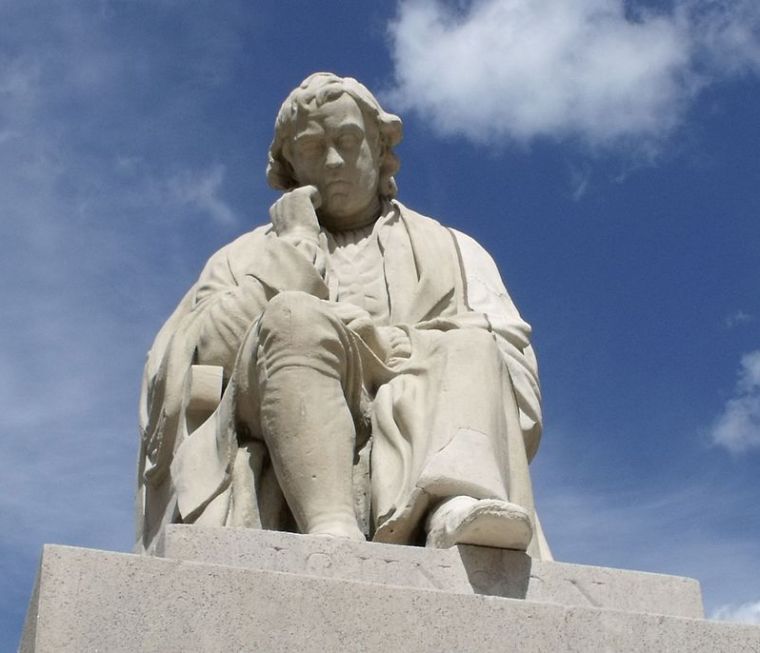Samuel Johnson, man of faith: 9 quotes from a literary legend
Dr Samuel Johnson was born today in 1709. The greatest literary figure of the 18th-century English-speaking world, he compiled the first real dictionary of the English language and wrote profound essays and criticism. But he comes to life in the biography of him written by his friend James Boswell, who loved and admired him. Physically, Johnson was tall and uncouth, given to strange exclamations and twitches; it's thought he may have had Tourette's Syndrome. His conversation – which Boswell noted down – was as extraordinary as his writing.

But as well as his learning and his humour, what has made him admired through the centuries is his sheer humanity. Never rich and often in need, he collected a houseful of eccentrics and cared for them as best he could. He abhorred slavery, and left money in his will to his black servant Frank Barber. On his walks at night he would press pennies into the hands of street children sleeping in doorways so they would wake at least with the price of a breakfast. And he had a deep, resolute Christian faith that kept him throughout his life in spite of frequent bouts of depression and self-torment.
He was described by one biographer as a man of 'heroic goodness'. Here are nine quotes from Samuel Johnson.
1. 'How is it we hear the loudest yelps for liberty among the drivers of negroes?' (From a pamphlet opposing American independence.)
2. The happiest part of a man's life is what he passes lying awake in bed in the morning.
3. Great works are performed not by strength, but by perseverance.
4. The natural flights of the human mind are not from pleasure to pleasure, but from hope to hope.
5. I am willing to love all mankind, except an American.
6. It is better to suffer wrong than to do it, and happier to be sometimes cheated than not to trust.
7. Since the Communion of last Easter I have led a life so dissipated and useless, and my terrours and perplexities have so much encreased, that I am under great depression and discouragement, yet I purpose to present myself before God tomorrow with humble hope that he will not break the bruised reed (Diary, Easter 1761).
8. I have now begun the sixtieth year of my life. How the last year has past I am unwilling to terrify myself with thinking. This day has been past in great perturbation, I was distracted at church in an uncommon degree, and my distress has had very little intermission (Diary, September 18, 1768).
9. Books, like friends, should be few and well chosen.











